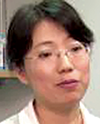Pitt Commands Share of 2013 Science Awards
University of Pittsburgh people will walk away with a commanding share of the 17 awards and five honorable mentions that comprise the 2013 Carnegie Science Awards, announced Jan. 30. There are seven Pitt honorees, and the eighth awardee is the CEO of a Pitt spin-off company.
These awards are given annually by the Carnegie Science Center to celebrate accomplishments and contributions to science and technology in Western Pennsylvania. The honorees will be recognized at a May 30 formal ceremony at Carnegie Music Hall. The names of the individual awards, the Pitt and Pitt-related honorees, and their accomplishments are listed below.
Catalyst Award
Nancy Minshew,  a professor of psychiatry and neurology in the Pitt School of Medicine and director of the Center of Excellence in Autism Research. For more than 25 years, her team has focused on the cognitive, brain, and behavioral basis of autism, and more recently on the underlying genetics and developmental neurobiologic mechanisms. These contributions have resulted in the recognition of autism as a selective disorder of complex information processing and linked to an altered development of cortical neural systems connectivity. Minshew’s group is currently working toward defining the hetereogeneity in autism, potentially paving the way for individualized treatment.
a professor of psychiatry and neurology in the Pitt School of Medicine and director of the Center of Excellence in Autism Research. For more than 25 years, her team has focused on the cognitive, brain, and behavioral basis of autism, and more recently on the underlying genetics and developmental neurobiologic mechanisms. These contributions have resulted in the recognition of autism as a selective disorder of complex information processing and linked to an altered development of cortical neural systems connectivity. Minshew’s group is currently working toward defining the hetereogeneity in autism, potentially paving the way for individualized treatment.
University/Post-Secondary Educator Award
Steven R. Little,  a professor, CNG Faculty Fellow, and chair in the Pitt Swanson School of Engineering’s Department of Chemical and Petroleum Engineering and the Pitt-UPMC McGowan Institute for Regenerative Medicine. Researchers in Little’s lab focus on developing synthetic substances that can release drugs or natural substances inside the body in ways that mimic real cells and tissues.
a professor, CNG Faculty Fellow, and chair in the Pitt Swanson School of Engineering’s Department of Chemical and Petroleum Engineering and the Pitt-UPMC McGowan Institute for Regenerative Medicine. Researchers in Little’s lab focus on developing synthetic substances that can release drugs or natural substances inside the body in ways that mimic real cells and tissues.
University/Post-Secondary Student Award
Elaine Houston, a graduate student in Pitt's School of Health and Rehabilitation Sciences and a graduate assistant in Pitt’s Human Engineering Research Laboratories. Houston is working on developing user interfaces including voice and touch screens to allow people with significant disabilities the ability to independently control a robotic power wheelchair with two robotic arms named PerMMA. She is also developing outcome measures to better understand and evaluate human-robot interaction for assistive robots.
a graduate student in Pitt's School of Health and Rehabilitation Sciences and a graduate assistant in Pitt’s Human Engineering Research Laboratories. Houston is working on developing user interfaces including voice and touch screens to allow people with significant disabilities the ability to independently control a robotic power wheelchair with two robotic arms named PerMMA. She is also developing outcome measures to better understand and evaluate human-robot interaction for assistive robots.
Emerging Female Scientist Award
X. Tracy Cui,  a professor of bioengineering and Bicentennial Alumni Faculty Fellow in Pitt’s Swanson School of Engineering. Cui’s research involves developing smart biomaterials for neural implants and neural tissue engineering. Her lab is specifically working on surface modification of neural probes, tissue response through drug release, electrically controlled drug delivery, stem cells for functional neural tissue engineering, and smart coatings for magnesium implants.
a professor of bioengineering and Bicentennial Alumni Faculty Fellow in Pitt’s Swanson School of Engineering. Cui’s research involves developing smart biomaterials for neural implants and neural tissue engineering. Her lab is specifically working on surface modification of neural probes, tissue response through drug release, electrically controlled drug delivery, stem cells for functional neural tissue engineering, and smart coatings for magnesium implants.
Start-Up Entrepreneur Award
Patrick Daly, president and CEO of Cohera Medical, which grew out of research conducted at Pitt. Eric Beckman, George Bevier Professor of Engineering at Pitt, is a cofounder and primary inventor of the company’s proprietary adhesive technology TissuGlu ® Surgical Adhesive. This adhesive is designed to reduce the need for surgical drains in plastic surgery procedures and is resorbable, biocompatible for internal use, and forms a strong bond between tissues.
Environmental Award
Robert Enick (ENGR ’83, ’85G), Bayer Professor and vice chair for research in the Department of Chemical and Petroleum Engineering of Pitt’s Swanson School of Engineering and faculty fellow at the National Energy Technology Laboratory Regional University Alliance (NETL-RUA). Enick’s work focuses on experimental investigations of carbon dioxide-based supercritical fluid technology, including CO2 capture. Most recently, Enick received a $2.4 million grant from the U.S. Department of Energy (DOE) Advanced Research Projects Agency – Energy to design a CO2 thickener and a $1.2 million grant from U.S. DOE NETL to assess the ability of such thickeners to improve crude oil extraction and better access domestic oil reserves.
Bayer Professor and vice chair for research in the Department of Chemical and Petroleum Engineering of Pitt’s Swanson School of Engineering and faculty fellow at the National Energy Technology Laboratory Regional University Alliance (NETL-RUA). Enick’s work focuses on experimental investigations of carbon dioxide-based supercritical fluid technology, including CO2 capture. Most recently, Enick received a $2.4 million grant from the U.S. Department of Energy (DOE) Advanced Research Projects Agency – Energy to design a CO2 thickener and a $1.2 million grant from U.S. DOE NETL to assess the ability of such thickeners to improve crude oil extraction and better access domestic oil reserves.
Life Sciences Award
David A. Vorp (ENGR ’86, ’92G), associate dean for research in Pitt’s Swanson School of Engineering and William Kepler Whiteford Professor of Bioengineering, with secondary appointments in the Departments of Cardiothoracic Surgery and Surgery in Pitt’s School of Medicine; director, Pitt’s Center for Vascular Remodeling and Regeneration; and director, Pitt’s Vascular Bioengineering Research Lab.
associate dean for research in Pitt’s Swanson School of Engineering and William Kepler Whiteford Professor of Bioengineering, with secondary appointments in the Departments of Cardiothoracic Surgery and Surgery in Pitt’s School of Medicine; director, Pitt’s Center for Vascular Remodeling and Regeneration; and director, Pitt’s Vascular Bioengineering Research Lab.
Vorp’s research on aortic aneurysms has dramatically changed the way clinicians view this disease, and his work surrounding vein graft modification is expected to lead to human trials soon. His approach to tissue-engineered arteries may one day change the way arterial bypass surgeries are performed.
Environmental Honorable Mention
Emily Elliott, an assistant professor of environmental isotope geochemistry in the Department of Geology and Planetary Science within Pitt’s Kenneth P. Dietrich School of Arts and Sciences. Elliot’s studies surround biogeochemistry, atmospheric pollution and chemistry, and long-term anthropogenic impacts to watersheds. Most recently, she and a group of researchers collected emissions samples from several power plant stacks in the United States and developed a unique method for detecting the isotopic signatures of nitrogen oxide emissions under different configurations. These emissions can drift back to the Earth’s surface, where they can deposit themselves and contribute to acidification and nutrient contamination.
Other Stories From This Issue
On the Freedom Road

Follow a group of Pitt students on the Returning to the Roots of Civil Rights bus tour, a nine-day, 2,300-mile journey crisscrossing five states.
Day 1: The Awakening
Day 2: Deep Impressions
Day 3: Music, Montgomery, and More
Day 4: Looking Back, Looking Forward
Day 5: Learning to Remember
Day 6: The Mountaintop
Day 7: Slavery and Beyond
Day 8: Lessons to Bring Home
Day 9: Final Lessons

